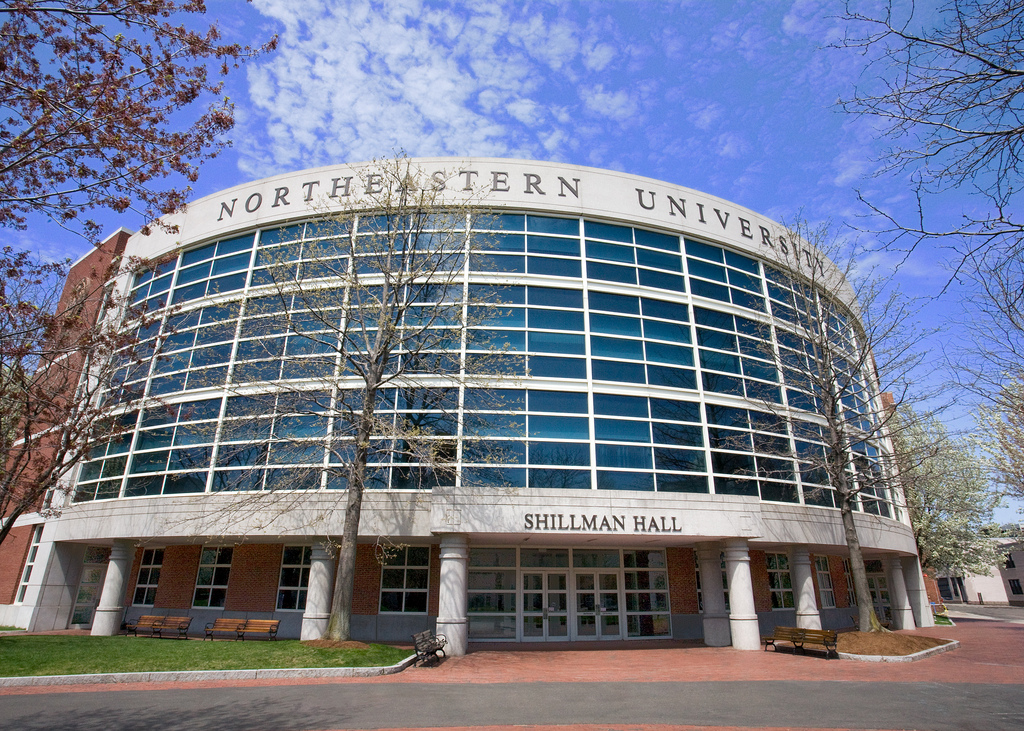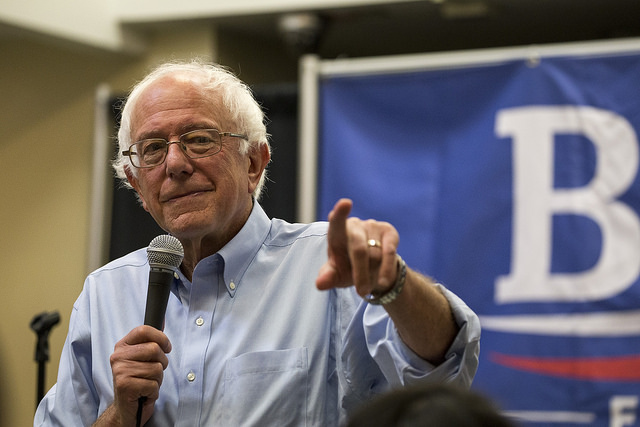At the heart of the Israel-Palestine conflict at Northeastern sits Northeastern University administration. Though “administration” is a vague term, I use it to define the upper-echelon of the people at this university: the president, the vice presidents, and the bureaucratic maze of departments and offices that set the standards of the university.
President Joseph Aoun is the leader of this group. He’s a dynamic man; sharp, worldly, capable. What he’s done for this school during his now 8-year tenure is almost incomprehensible. When he became president in March of 2007, Northeastern was ranked the 98th best national university by U.S. News and World Report. (1) Now, it is 42nd. (2) That sort of jump for a top-100 university is baffling. Aoun has relentlessly promoted the cooperative education model, where students work full-time for 6-month periods during their university education. (3) He also has been a huge advocate for global educational opportunities that fit with the needs of a 21st century economy, transforming Northeastern’s study abroad and international co-op programs in the process. (4) As a student here, I can feel the intense energy of a school on the rise, a school poised to make its mark on the world. However you look at it, Northeastern’s time has come, a statement to the ambition of its leadership.
But Aoun’s past achievements and future goals require money. Lots and lots of money. And Northeastern administration knows quite well how to get it. Just look at Northeastern’s current fundraising venture, the Empower Campaign. The campaign is laden with some of the most corny, feel-good rhetoric you will ever hear. “Fueled by the ‘power of we’…our students and faculty will master and create knowledge that improves lives,” its website unabashedly proclaims. (5) But behind Empower’s grandiloquence is the very real desire to raise $1 billion by 2017. According to a Huntington News article from December 2013, the achievement of this goal is a “foregone conclusion,” primarily backed by the wealthiest of individuals. (6) The article goes on to note that “in sizable fundraising campaigns like Empower, 95 percent of the money will likely come from five percent of the donors.” (7) The power of we? Try the power of the very, very, very rich.
But what in the world does any of this have to do with Israel-Palestine on campus? Well, Northeastern’s grand goals require a certain sales-oriented mentality when trying to convince individuals to donate hundreds of thousands of dollars. That mentality is summed up perfectly by Diane MacGillivray, Senior Vice President of University Affairs.
First I would say that there will be a continuing shift from what we might describe as a donor culture, or a pure-giving culture, where people are happy to make a gift and have an institution use it in any way that the institution sees fit to what I would describe as more of an investor culture where accountability and outcome, what we might also call a return on investment, is going to be expected. (8)
The key phrase MacGillivray uses is return on investments. Money given to Northeastern is no longer a donation, but an investment. People invest in businesses for one reason: to make money. That is the purpose of a business. But Northeastern is a not-for-profit university. There is no money to be made here. Universities, instead, provide education. The return on investment, therefore, is not a monetary return, but the right to influence the education and student discourse at Northeastern. So what happens when universities start to consider their donors to be investors? Someone like Robert Shillman, a philanthropic supporter of various Zionist organizations and a huge Northeastern donor, may not want his $3 million to support a pro-Palestine student group that questions Israeli policy. (9) And because Northeastern now calls him an investor, he has the right to say this, and Northeastern has an obligation to listen to him and act according to his will. That is the accountability and outcome that MacGillivray is talking about, that Northeastern has committed to. If you really want to get the administration’s attention, carbon copy Robert Shillman. That’s what the Zionist Organization of America did when it accused Northeastern of anti-semitism in July 2013. (10) Less than a year later, SJP, who was specifically named in that letter, got the axe. (11) (12)
Shillman also served on the Board of Trustees and is a trustee emeritus. (13) The Board elects all officers of the university, including the president, chancellor, treasurer, and all vice presidents. (14) The wealthy donors who sit on the Board already have an inordinate level of influence on the direction of this university. And maybe that’s fair because Northeastern would not exist without their generosity. But it’s unfair that these people are now considered investors, that they undeniably own the right to bend administration to their will. Administration has put such a high premium on money that they’ve sold their right to promote unbiased education and open student discourse to the highest-bidders.
Northeastern’s overarching purpose – or what should be its purpose – is stated in its motto: veritas, which means “truth” in Latin. How can Northeastern provide a safe environment for students to explore truth if it’s beholden to the biases of its investors? Just this week, SJP was denied the right by the Student Government Association, “the official liaison between students and the University Faculty and Administration,” to even petition for a vote on their Israel divestment initiative. (15) Students were denied the chance to simply debate an issue, much less vote on it. If SJP reacts in any way, it does so under the threat of a second suspension.
But this problem extends much deeper than just Israel-Palestine. What if we have an investor that is also the CEO of an oil company? Will our fossil fuel divestment initiative, passed overwhelmingly by student referendum, prove worthless? Under Northeastern’s current model, student discourse is an unimportant idea, brushed aside when necessary to make sure the money keeps coming. I appreciate everything this administration has done for me as a student, but I can’t help but think that our ambition to be a top university has blinded us from what we were meant to be: a truth seeking institution, built by and for the students. The Israel-Palestine discussion may be the first of many victims.
References
- “Northeastern Rises to #49 in National Ranking.” Northeastern Rises to #49 in National Ranking. September 11, 2013. Accessed February 24, 2015.
- “National Universities Rankings.” National University Rankings. Accessed February 24, 2015.
- Nick Anderson. “Northeastern U. Talks up Its Professional Connections, Not Its U.S. News Ranking.” Washington Post. September 15, 2014. Accessed February 24, 2015.
- Joseph Aoun. “Expand Students’ Global Experiences.” Opinion:. August 24, 2010. Accessed February 24, 2015.
- “The Power of We.” Empower. Accessed February 24, 2015.
- “Historic Campaign Targets Wealthy Donors.” The Huntington News RSS. December 5, 2013. Accessed February 24, 2015.
- “Historic Campaign Targets Wealthy Donors.” The Huntington News RSS. December 5, 2013. Accessed February 24, 2015.
- Diane MacGillivray, interview by Cynthia Woolbright. April 20, 2014.
- Max Blumenthal. “Northeastern University SJP Chapter Suspended as Members Are Subjected to Police Interrogation.” Mondoweiss. March 12, 2014. Accessed February 26, 2015.
- Max Blumenthal. “Northeastern University SJP Chapter Suspended as Members Are Subjected to Police Interrogation.” Mondoweiss. March 12, 2014. Accessed February 26, 2015.
- Accessed February 27, 2015.
- Max Blumenthal. “Northeastern University SJP Chapter Suspended as Members Are Subjected to Police Interrogation.” Mondoweiss. March 12, 2014. Accessed February 26, 2015.
- “Members of the Corporation 2014-2015 | Northeastern University.” Members of the Corporation 2014-2015 | Northeastern University. Accessed February 27, 2015.
- “Governing Boards.” Governing Boards. Accessed February 27, 2015.
- “About.” Student Government Association. Accessed February 27, 2015. http://www.sga.neu.edu/association/about-2/.



